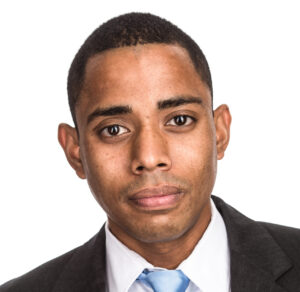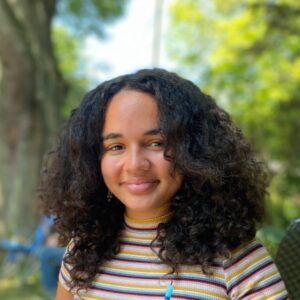For over 20 years, our team works to strengthen democracy for all voters.
Staff
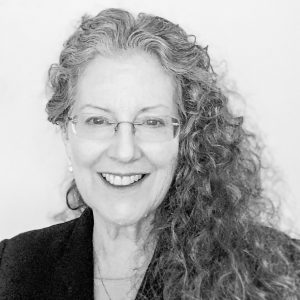
Pamela Smith
President & CEO
president@verifiedvoting.org
Read more
Pamela Smith
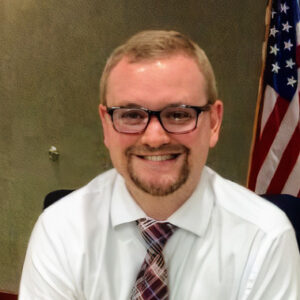
C.Jay Coles
Deputy Director of Legislative Affairs
Read more
C.Jay Coles
C.Jay Coles is Verified Voting’s Deputy Director of Legislative Affairs. In this role he is responsible for tracking legislation around the country, advocating for legislation that aligns with Verified Voting’s interests (accuracy, security, and verifiability in our elections), and building relationships with key government officials, lawmakers, other advocates, and relevant stakeholders.
Prior to joining Verified Voting, he spent more than a decade as an elections administrator and local government official in both Idaho and Oregon. When not in the office, you will likely find C.Jay enjoying the great outdoors, attempting to perfect his amateur photography skills, or rooting for his favorite college football team (Go Broncos!).
C.Jay has an associate’s degree in Political Science from the College of Western Idaho, bachelor’s degree in Public Administration from Southern New Hampshire University and also holds a Master’s of Public Administration from Eastern Kentucky University.
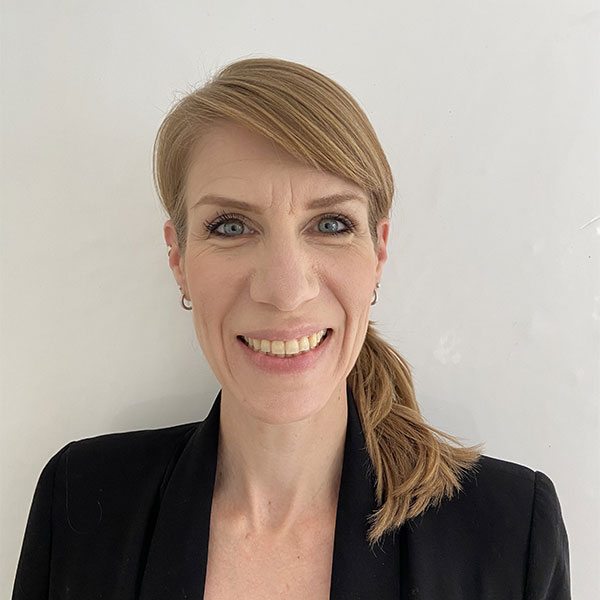
Mariska van Delft
Operations & HR Director
Read more
Mariska van Delft
Mariska van Delft supports Verified Voting as Operations and HR Director. She brings operational, human resources, and compliance expertise, and a keen eye for administrative improvements and policies. Prior to joining Verified Voting, she served on the FairVote operations team for two years, where she was key to successfully implementing a number of new systems and processes. A Dutch criminal defense and human rights lawyer by trade, Mariska practiced law in Amsterdam and worked with the defense at the Extraordinary Chambers in the Courts of Cambodia. She served as a human rights officer with the EU Rule of Law mission in Kosovo, before taking on her first operational role as operations director with a small non-profit focussed on supporting refugees and asylum seekers in Greece. Mariska has a dual masters degree in criminal law and international/European law from the University of Leiden, the Netherlands.
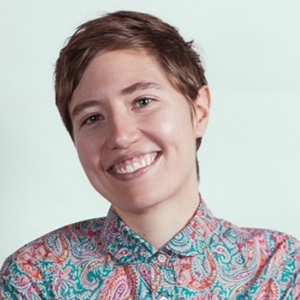 Saige Draeger
Saige Draeger
Senior Policy Associate
Saige Draeger
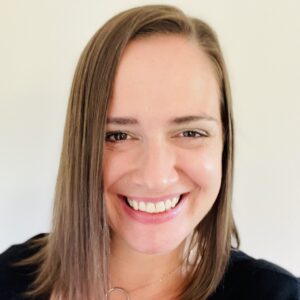
Corrie Emerson
Communications Director
press@verifiedvoting.org
Read more
Corrie Emerson
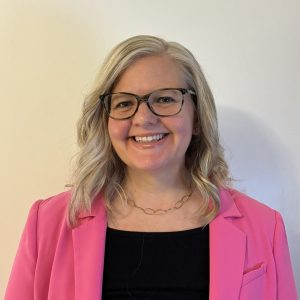
Jessica King
Senior Policy Associate
Read more
Jessica King
As Senior Policy Associate at Verified Voting, Jessica King partners with states to implement and promote best practices that strengthen public confidence in elections, including robust tabulation audits, ballot accounting, and chain-of-custody documentation. She builds relationships with election administrators, partner organizations, and other stakeholders in the pro-democracy space, representing Verified Voting on the Election Protection Coalition’s steering committee and coordinating responses to election equipment issues during voting periods to ensure voters can cast ballots effectively. With a decade of county-level election administration experience in Cuyahoga County, Ohio, Jessica brings a deep understanding of election processes and a commitment to transparency that enhances voter trust. She holds both a Bachelor of Science in Journalism and a Master of Arts in Communication Studies from Bowling Green State University. Outside of work, she enjoys live music, traveling, and enjoying the outdoors with her Australian Cattle Dog, Cecilia.

Chrissa LaPorte
Deputy Policy & Strategy Director
Read more
Chrissa LaPorte
Chrissa LaPorte is Verified Voting’s Deputy Policy & Strategy Director. She works with state and local officials to pilot and implement rigorous post-election audits. She brings more than 10 years of nonprofit experience to her role at Verified Voting. For many years, she oversaw the policy initiatives of the French-American Foundation, an organization dedicated to promoting French-American relations and an exchange of best practices among policymakers and professionals from a range of industries. Notably, she spearheaded an annual cybersecurity conference for senior government officials, leading academics, and private sector security experts. She holds a bachelor’s degree from Brown University and is also a graduate of Columbia University’s School of International and Public Affairs. Outside of work, she’s happiest in her garden or reading a book.
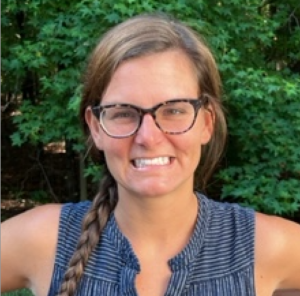
Brittany Ledford
Development Operations & Data Associate
Brittany Ledford

Mark Lindeman, Ph.D.
Policy & Strategy Director
vvdirector@verifiedvoting.org
Read more
Mark Lindeman
Carlos Livingston
Managing Director
Read more
Carlos Livingston
Sunčana Pavlić
Digital Communications Associate
Read more
Sunčana Pavlić

Edward Piou
Technology Consultant
Read more
Edward Piou

Michael Raimondi
Senior Financial Consultant
Read more
Michael Raimondi
Michael Raimondi is proud to serve at the Senior Financial Consultant for Verified Voting, where he provides the organization with expert guidance and support for budgeting, grant reporting, expense management, and financial technology. Michael is a Wealth Manager and Director of Operations for Clarus Group, LLC, where he provides investment advisory and financial planning services to Creative Professionals in a wide variety of fields, as well as his LGBTQIA+ community, and many others. Michael earned his BFA from Chapman University, his MFA from The New School, and the esteemed CERTIFIED FINANCIAL PLANNER™ designation after having receive his Certificate in Financial Planning from New York University. Michael is an Adjunct Professor at PACE University’s Lubin School of Business where he teaches as part of the MS/MBA in Entertainment Management program. He is originally from Southern California, but New York City is his home. He enjoys cinema, reading, and walking his dog in Riverside Park, as well as experiencing and creating theatre as an actor, director, writer, and producer.
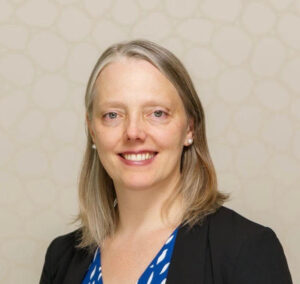
Susanna Rodriguez
Grant Manager
development@verifiedvoting.org
Read more
Susanna Rodriguez
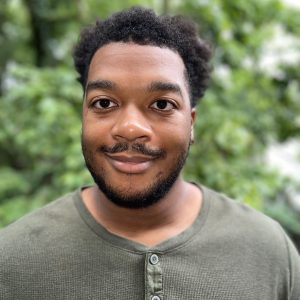
Lamontae Shively
Research & Outreach Associate
Read more
Lamontae Shively

Warren Stewart
Senior Editor & Data Specialist
Read more
Warren Stewart
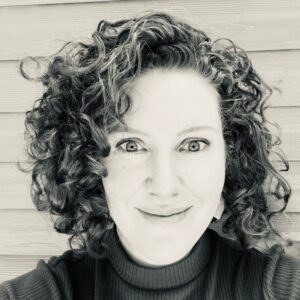 Ellie Yearns
Ellie Yearns
Development Director
Read more
Ellie Yearns
As Development Director, Ellie Yearns is responsible for identifying, cultivating, securing, and stewarding new development initiatives and donors while strategically expanding capacity and impact. Ellie has over seventeen years of fundraising experience in the nonprofit sector to help Verified Voting fulfill its mission. She has spent the majority of her professional career in higher education advancement, first as part of Guilford College’s advancement team for 10 years, and then as Assistant Vice President for Development at Greensboro College for seven years. While at those institutions, she was a frontline fundraiser during two comprehensive capital campaigns that successfully achieved or surpassed their goals, raising $75 million and $21 million. Ellie earned her bachelor’s and master’s degrees from Greensboro College. In her spare time she enjoys running, cooking, traveling, and spending time with her family.
Board of Directors

Barbara Simons, Ph.D.
Board Chair
Read more
Barbara Simons, Ph.D.
 Allegra Chapman
Allegra Chapman
Allegra Chapman
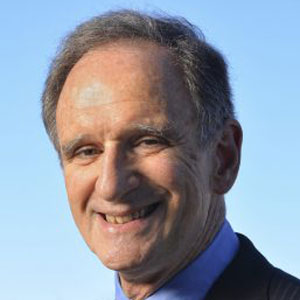
Martin E. Hellman, Ph.D.
Martin E. Hellman, Ph.D.
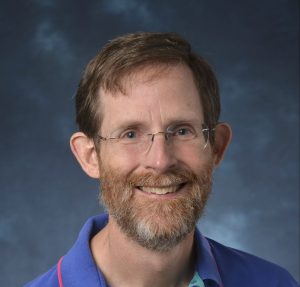
Neal McBurnett
Neal McBurnett
Neal McBurnett is an independent consultant in election integrity, security and data science. He has helped secure elections since 2002 by pioneering post-election audits, serving as a precinct election judge, and working with election administrators, legislators and secretaries of state. He was a major contributor to “Principles and Best Practices for Post-Election Audits” (2008). He conducted the first risk-limiting audit outside California, and consulted on Colorado’s Risk Limiting Audit project and ballot-level risk-limiting audits that reached new levels of efficiency and scale. He also audited the innovative Scantegrity end-to-end-verifiable election in Takoma Park MD in 2011, and was a member of the STAR-Vote design team. He has also contributed to data format standards for elections, having served as vice-chair of IEEE P1622, and worked with NIST and the US Election Assistance Commission (EAC) in several VVSG working groups. He is active with the Election Verification Network, and has served on the board of the Center for Election Science, exploring voting methods that better represent voters’ preferences. McBurnett worked as a Distinguished Member of Technical Staff at Bell Labs, Denver, where he led engagement with the WWW, IETF and open source. Then he helped run the Internet2 / NIST IDtrust symposium for 10 years, and has also taught AI at the University of Colorado, and worked with Databricks and Free & Fair. He holds Computer Science degrees from the University of California at Berkeley (M.S.) and Brown University (B.S.).
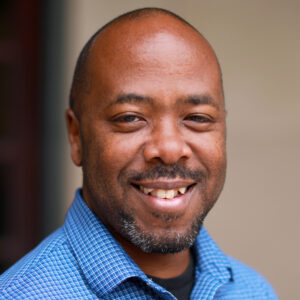 Bertrall Ross
Bertrall Ross
Bertrall Ross
Bertrall Ross is the Thurgood Marshall Distinguished Professor of Law at the University of Virginia Law School. Ross teaches and writes in the areas of constitutional law, constitutional theory, election law, administrative law and statutory interpretation.
Ross’ research is driven by a concern about democratic responsiveness and accountability, as well as the inclusion of marginalized communities in administrative and political processes. His past scholarship has been published in several books, edited volumes, and journals. Two of his articles were selected by the Yale/Harvard/Stanford Junior Faculty Forum.
Prior to joining the Virginia faculty, Ross was the Chancellor’s Professor of Law at the University of California, Berkeley School of Law. At Berkeley, he was awarded the Rutter Award for Teaching Excellence, the Berlin Prize from the American Academy in Berlin, and the Princeton University Law and Public Affairs Fellowship. Prior to joining the legal academy, Ross was the Kellis Parker Academic Fellow at Columbia Law School and a Marshall Scholar at the University of London School of Oriental and African Studies and the London School of Economics and Political Science. Ross is currently serving as the Chair of the Rulemaking Committee for the Administrative Conference of the United States and previously served on President Joseph Biden’s Commission on the Supreme Court.
Ross earned his undergraduate degree in international affairs and history from the University of Colorado, Boulder; his graduate degrees from the London School of Economics and Princeton University’s School of Public and International Affairs; and his law degree from Yale Law School. After law school, he clerked for Judge Dorothy Nelson of the U.S. Court of Appeals for the Ninth Circuit and Judge Myron Thompson of the U.S. District Court for the Middle District of Alabama.

Eileen Segall
Eileen Segall
Eileen Segall has more than 20 years of experience in the financial services industry. Her past roles include as a Senior Investment Analyst at Ensemble Capital Management, a Senior Analyst at Bloomberg Intelligence, and various roles at Artisan Partners, Tildenrow Partners, Nicusa Capital and Robertson Stephens. She also served for three years on the Board of Directors of On Track Innovations, Ltd., a NASDAQ-listed company, where she was Chair of the Audit Committee and Chair of the Compensation Committee. Ms. Segall holds a bachelor’s degree from the Massachusetts Institute of Technology (M.I.T.) in Materials Science and Engineering.

Kevin Shelley
Kevin Shelley
Kevin Shelley is a former California Secretary of State and State Assembly leader recognized as an advocate for working people, consumers and investors. Mr. Shelley’s political involvement began in 1978 as a staff member to U.S. Representatives Phil and Sala Burton. He then played a key role in electing their successor, current Speaker of the U.S. House of Representatives Nancy Pelosi, in 1987. His own political career began in 1990, when he won a seat on the San Francisco Board of Supervisors. Elected to the California State Assembly in 1996, he championed the rights of workers and fought to protect civil rights.
Mr. Shelley, who spent five of his six years in the State Assembly as Majority Leader, won election for Secretary of State in November 2002. As the state’s Chief Election Officer, he is credited with improving voter participation, calmly overseeing the historic recall election, and decertifying problematic electronic voting machines. He established the first in the nation standards for accessible voter-verified paper audit trails to be used with direct recording electronic (DRE) voting machines in California. Since 2005, Mr. Shelley has been representing consumers and plaintiffs in civil litigation. He is the son of Jack Shelley, a former San Francisco mayor, U.S. congressman and California state senator.

Michelle Swenson
Michelle Swenson
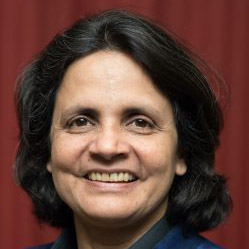
Poorvi L. Vora, Ph.D.
Poorvi L. Vora, Ph.D.
Board of Advisors
Andrew W. Appel, Ph.D.
Andrew W. Appel, Ph.D.
Andrew W. Appel, Ph.D., is the Eugene Higgins Professor of Computer Science at Princeton University, where he has been on the faculty since 1986. He served as Department Chair from 2009-2015. His research is in software verification, computer security, programming languages and compilers, and technology policy. He received his A.B. /summa cum laude/ in physics from Princeton in 1981, and his PhD in computer science from Carnegie Mellon University in 1985. He has been Editor in Chief of ACM Transactions on Programming Languages and Systems and is a Fellow of the ACM (Association for Computing Machinery). He has worked on fast N-body algorithms (1980s), Standard ML of New Jersey (1990s), Foundational Proof-Carrying Code (2000s), and the Verified Software Toolchain (2010s). He is the author of several scientific papers on voting machines and election technology, served as an expert witness on two voting-related court cases in New Jersey, taught a course at Princeton on Election Machinery, and was a member of the 2017-18 National Academy of Sciences study committee on the Future of Voting.
Ruchika Agrawal
Ruchika Agrawal
Ruchika Agrawal has worked on intersectional technology, law, and public policy issues since 2001. She has published in major law and tech media and presented at numerous conferences. She worked at Electronic Privacy Information Center (EPIC) on international privacy frameworks and privacy by design technologies. She has significant trial and litigation experience, diversified in-house counsel experience (in major software/hardware, cybersecurity, and semiconductor companies), is CIPP/US certified, and completed a federal district court clerkship. She does a lot of community service work, and her recognitions include the Bloomberg Financial Markets Award for Outstanding Service to the Community. She has a graduate degree in Computer Science from Stanford University and a law degree from the University of Virginia School of Law; she also has an undergraduate degree from Rutgers-New Brunswick, where she double-majored in Computer Science and Philosophy (sub-specializing in cognitive science, artificial intelligence, and machine learning).
Steven M. Bellovin, Ph.D.
Steven M. Bellovin, Ph.D.
Steven M. Bellovin is the Percy K. and Vidal L. W. Hudson Professor of computer science at Columbia University and member of the Cybersecurity and Privacy Center of the university’s Data Science Institute. He is the Technology Scholar at the Privacy and Civil Liberties Board. He does research on security and privacy and on related public policy issues. In his copious spare professional time, he does some work on the history of cryptography. He joined the faculty in 2005 after many years at Bell Labs and AT&T Labs Research, where he was an AT&T Fellow. He received a BA degree from Columbia University, and an MS and Ph.D. in Computer Science from the University of North Carolina at Chapel Hill. While a graduate student, he helped create Netnews; for this, he and the other perpetrators were given the 1995 Usenix Lifetime Achievement Award (The Flame). Bellovin has served as Chief Technologist of the Federal Trade Commission. He is a member of the National Academy of Engineering and is serving on the Computer Science and Telecommunications Board of the National Academies of Sciences, Engineering, and Medicine. In the past, he has been a member of the Department of Homeland Security’s Science and Technology Advisory Committee, and the Technical Guidelines Development Committee of the Election Assistance Commission; he has also received the 2007 NIST/NSA National Computer Systems Security Award and has been elected to the Cybersecurity Hall of Fame.
Bellovin is the author of Thinking Security and the co-author of Firewalls and Internet Security: Repelling the Wily Hacker, and holds a number of patents on cryptographic and network protocols. He has served on many National Research Council study committees, including those on information systems trustworthiness, the privacy implications of authentication technologies, and cybersecurity research needs; he was also a member of the information technology subcommittee of an NRC study group on science versus terrorism. He was a member of the Internet Architecture Board from 1996-2002; he was co-director of the Security Area of the IETF from 2002 through 2004.
Matt Blaze, Ph.D.
Matt Blaze, Ph.D.
Jeff Bleich
Jeff Bleich
Jeff Bleich is General Counsel at Anthropic. He previously served in the U.S. Ambassador to Australia from 2009 to 2013, and as Special Counsel to President Obama in the White House. In addition to this, he served as the CEO of Dentons Diplomatic Solutions, a partner at Munger, Tolles & Olson LLP, and the Chief Legal Officer at Cruise. Ambassador Bleich has over two decades of experience working on complex cyber-security and technology issues. He served as a senior advisor to the Director of National Intelligence on cybersecurity matters, as well as serving as an advisor to California Governor Jerry Brown, and to Secretary of State Hillary Clinton on cyber matters. He has served on multiple boards including advisory boards of international cyber-technology companies and think tanks including RAND Australia, Tanium, and Nuix. He has been recognized as one of the most influential lawyers in the United States by LawDragon and other legal publications. Earlier in his career, Ambassador Bleich clerked for Chief Justice William Rehnquist of the U.S. Supreme Court, Judge Abner Mikva of the U.S. Court of Appeals for the D.C. Circuit, Judge Howard Holtzmann of the Iran-U.S. Claims Tribunal at The Hague, and was the Special Rapporteur for the Permanent Court of Arbitration. He is a certified arbitrator by the American Arbitration Association.
Cindy Cohn
Cindy Cohn
Cindy Cohn is the Executive Director of the Electronic Frontier Foundation. From 2000-2015 she served as EFF’s Legal Director as well as its General Counsel. Ms. Cohn first became involved with EFF in 1993, when EFF asked her to serve as the outside lead attorney in Bernstein v. Dept. of Justice, the successful First Amendment challenge to the U.S. export restrictions on cryptography. The National Law Journal named Ms. Cohn one of 100 most influential lawyers in America in 2013, noting: “[I]f Big Brother is watching, he better look out for Cindy Cohn.” She was also named in 2006 for “rushing to the barricades wherever freedom and civil liberties are at stake online.” In 2007 the National Law Journal named her one of the 50 most influential women lawyers in America. In 2010 the Intellectual Property Section of the State Bar of California awarded her its Intellectual Property Vanguard Award and in 2012 the Northern California Chapter of the Society of Professional Journalists awarded her the James Madison Freedom of Information Award.
Lillie Coney
Lillie Coney
Larry Diamond, Ph.D.
Larry Diamond, Ph.D.
David Dill, Ph.D.
Verified Voting Founder
David Dill, Ph.D.
Timothy Edgar
Timothy H. Edgar
Timothy H. Edgar is a leading expert on cybersecurity and privacy and teaches at Brown University and Harvard Law School. From 2006 to 2013, he served in the intelligence community and at the White House, which he discusses in his book, Beyond Snowden: Privacy, Mass Surveillance and the Struggle to Reform the NSA. At Brown University, Timothy is a professor of the practice of computer science and a senior fellow at the Watson School for International and Public Affairs, and also helped launch Brown’s cybersecurity master’s degree program. At Harvard Law School, he teaches a course in the legal problems of cybersecurity, where he is a lecturer on law.
From 2006 to 2013, Timothy served in the intelligence community at the Office of the Director of National Intelligence, which included a detail at the White House (2009-2010) as the first-ever privacy official for the national security staff in a position created by President Barack Obama. Prior to his government service, Timothy served as a legislative counsel for the ACLU, which he joined in 2001 shortly before the 9/11 terrorist attacks. He was a law clerk to Judge Sandra Lynch of the United States Court of Appeals for the First Circuit, and is a graduate of Harvard Law School (1997) and Dartmouth College (1994). Timothy is a contributing editor to Lawfare and has written for the Wall Street Journal, the Los Angeles Times, the Guardian, Foreign Affairs, and Wired. He is regularly quoted in the national press and has often testified before Congress.
Efrain Escobedo
Efrain Escobedo
Efrain Escobedo is the vice president in charge of civic engagement, multisector collaboration and public policy at California Community Foundation, responsible for promoting collaboration and advocacy efforts across the nonprofit, public and private sectors to address community problems. He is recognized nationally and locally as an active leader and expert in Latino civic engagement and elections policy. He has worked extensively with academia, civic and community organizations, as well as with elected officials in developing research, strategies and program to increase voter participation.
Prior to joining CCF, Escobedo was the manager of governmental and legislative affairs for the Registrar of Voters in Los Angeles County, the largest election jurisdiction in the nation with more than 4.5 million registered voters. There, he worked with elected officials to enact numerous initiatives aimed at making the voting process easier for Angelenos, including the electronic delivery of sample ballots and the authorization of online voter registration. Escobedo also served as senior director of civic engagement for the National Association of Latino Elected and Appointed Officials (NALEO) Educational Fund, where he led the development of innovative voter contact strategies and technologies that have helped to engage more than one million young, newly registered and infrequent Latino voters across the country. Escobedo earned his bachelor’s degree in American studies and ethnicity from the University of Southern California and is a recent graduate of the Los Angeles County Executive Leadership Program.
Jeremy Epstein
Jeremy Epstein
Jeremy Epstein is lead program officer for the NSF Secure and Trustworthy Cyberspace (SaTC) program, NSF’s flagship multi-disciplinary cybersecurity & privacy program. Prior to this role, he was Deputy Division Director of CISE/CNS, where he was responsible for research in a range of computer science programs, including cybersecurity, cyber physical systems, smart and connected communities, computer systems, networking, computer science education, technology transition, and other assorted topics.
Prior to (re)joining NSF in 2017, he was a program manager at DARPA I2O, and a program officer for NSF’s Secure and Trustworthy Cyberspace (SaTC) program. He spent most of his career in industry, including at SRI International and webMethods. His areas of interest are in cybersecurity, particularly elections and voting security.
Jeremy is also chair of the Association for Computing Machinery US Technology Policy Committee, founder/director of ACSA Scholarships for Women Studying Information Security (SWSIS), and former associate editor-in-chief of IEEE Security and Privacy Magazine.
Aleksander Essex, Ph.D.
Aleksander Essex, Ph.D.
Aleksander Essex is an associate professor of software engineering at Western University, Canada. His research specializes in cybersecurity and cryptography, focusing on the cyber risks of online voting. He co-initiated the Digital Governance Standards Institute’s voluntary standard on online voting and has advised numerous election agencies, including many Ontario municipalities, as well as Elections Ontario, Elections Northwest Territories, Elections Yukon, the National Association of Aboriginal Lands Managers Association, the Swiss Federal Chancellery, and the Australian Capital Territory Election Commission.
Dave Farber, Ph.D.
Dave Farber, Ph.D.
Dave Farber was appointed to be Chief Technologist at the US Federal Communications Commission in 2000 and has served on the U.S. Presidential Advisory Board on Information Technology and the FCC’s Technological Advisory Council. Prof. Farber was also appointed to the Advisory Council or the CISE Directorate of the National Science Foundation and is a Trustee of the Electronic Frontier Foundation. He is a Visiting Professor of the Center for Global Communications of Japan — Glocom of the International University of Japan, a Member of the Advisory Board at the National Institute of Informatics of Japan and a Member of the Advisory Boards of both the Center for Democracy and Technology and EPIC. He was named in the 1997 edition of the UPSIDE’s Elite 100, as one of the Visionaries of the field and was named in the 1999 Network World as one of the 25 most powerful people in Networking. In 2002 he was named by Business Week as one of the top 25 leaders in E-Commerce. His industrial experiences are extensive, just as he entered the academic world; he co-founded Caine, Farber & Gordon Inc. (CFG Inc.) which became one of the leading suppliers of software design methodology. His consulting activities include Intel, the RAND Corp among others. He is also on a number of industrial advisory and management boards, major among these are NTT DoCoMo, Boingo, Rainmaker and E-tenna.
Edward W. Felten, Ph.D.
Edward W. Felten, Ph.D.
Edward W. Felten, Ph.D. is a Professor of Computer Science and Public Affairs at Princeton University, and the founding Director of Princeton’s Center for Information Technology Policy. In 2011-12 he served as the first Chief Technologist at the U.S. Federal Trade Commission. His research interests include computer security and privacy, especially relating to media and consumer products; and technology law and policy. He has published about eighty papers in the research literature, and two books. His research on topics such as web security, copyright and copy protection, and electronic voting has been covered extensively in the popular press. His weblog, at freedom-to-tinker.com, is widely read for its commentary on technology, law, and policy. He is a member of the National Academy of Engineering and the American Academy of Arts and Sciences, and is a Fellow of the ACM. He has testified before the House and Senate committee hearings on privacy, electronic voting, and digital television. In 2004, Scientific American magazine named him to its list of fifty worldwide science and technology leaders. In May 2015 he was appointed deputy chief technology officer in the White House’s Office of Science and Technology Policy.
Lowell Finley
Lowell Finley
Lowell Finley is an attorney with a long history of involvement in election integrity issues. In 2003, he brought the first successful lawsuit against a voting system manufacturer for misrepresenting the security capabilities of its product while marketing it to a county elections department. That case, under the California False Claims Act, resulted in $2.6 million in payments to state and local agencies and an injunction, requiring Diebold Election Systems, Inc., to strengthen the security protocols employed with its Accuvote TS touchscreen voting machines and vote tabulation servers. He was co-founder and co-director of Voter Action, a nonprofit that litigated state constitutional challenges to the use of paperless touchscreen voting systems in California, Arizona, New Mexico, Colorado and Pennsylvania in 2005 and 2006. From 2007 to 2014, he served as Deputy Secretary of State for Voting Systems Technology and Policy under California Secretary of State Debra Bowen. In that capacity, he oversaw the 2007 Top To Bottom Review of the voting systems used in California, conducted in collaboration with computer security experts from the University of California, Princeton, Rice and other universities, which led to the decertification of several voting systems and eventually to the adoption of new, comprehensive voting system certification standards. He also served as California’s representative on the Standards Board of the U.S. Election Assistance Commission. He holds a B.A. from the University of California, Santa Cruz, and a J.D. from the University of California, Berkeley School of Law.
Michael J. Fischer, Ph.D.
Michael J. Fischer, Ph.D.
Michael J. Fischer, Ph.D. has been Professor of Computer Science at Yale University since 1981. He has an M.A. (1965) and a Ph.D. (1968) from Harvard University. Professor Fischer supervised Josh Benaloh‘s dissertation, “Verifiable Secret-Ballot Elections” (1987), which was the first distributed voting protocol to simultaneously achieve voter privacy and voter verifiability. Professor Fischer is a founding member of TrueVoteCT.org, a public-service organization that helped to bring verifiable optical scan voting technology to Connecticut. He was appointed by Connecticut Governor Jodi Rell in 2005 to the short-lived Voting Technology Standards Board, where he was elected Vice-chair by its members. His research interests include theory of distributed and parallel computing, cryptography, and computer security.
John Gage
John Gage
John Gage is one of the founders of Sun Microsystems, a US computer pioneer. He was Chief Researcher, Vice President, and Director of the Science Office from 1982 until 2008. From 2008-2010 he was a partner at venture capital firm Kleiner Perkins Caufield & Byers, focused on creating new companies based on innovations in energy, computing and materials technology. In 2010 he joined the University of California, Berkeley Center for Information Technology Research in the Interest of Society. In 2011, he joined the Human Needs Project in Kibera, Nairobi, Kenya as Chief Science Officer to develop and build water, sanitation, information and control systems to advance public health in the largest slum in East Africa. The Centre opened in 2014, and delivers hundreds of cubic meters of clean water a day to thousands of members of the slum community.Gage has served on scientific advisory panels for the US National Research Council, the US National Academy of Sciences, and the World Economic Forum. Most recently, he served on the US National Academy Committee on Scientific Communication and National Security and on the Markle Foundation Task Force on National Security, whose reports aided in reorganizing US intelligence agencies. He co-founded NetDay in 1995, bringing Internet connectivity to over 70,000 US schools by mobilizing hundreds of thousands of volunteer engineers. He has served on the boards of the US National Library of Medicine, of FermiLab, the Berkeley Mathematical Sciences Research Institute, and other scientific and educational groups. He served on the Board of Directors of the Markle Foundation in New York, and on the United Nations Digital Task Force. Currently he serves on the board of Liquid Robotics, on the Malaysian International Advisory Panel, and on the advisory boards of the University of California, Berkeley Goldman School of Public Policy, the Oxford Martin School, the Tegla Loroupe Peace Foundation in Kenya, the Human Needs Project, and the Open Source Election Technology Institute. Gage attended the University of California, Berkeley, the Harvard Business School, and the Harvard Kennedy School of Government.
Susannah Goodman
Susannah Goodman
the state and federal level to advocate for policies which bring resilience, auditability and confidence to
U.S. voting systems and election infrastructure. She works closely with Common Cause national and
state staff and coalition partners across the country. She has testified before Congressional and state
legislative committees, appeared on national news television programs, and co- authored a number of
reports on elections and voting including Malfunction and Malfeasance: A Report on the Electronic
Voting Machine Debacle, Is America Ready to Vote? State Preparations for Voting Machine Problems in 2008, Voting in 2010: Ten Swing States, and Counting Votes 2012: A State by State Guide to Election Preparedness, The Secret Ballot At Risk, Email and Internet Voting: The Overlooked Risk to Election Security. She is the recipient of the Electronic Verification Network’s Long Term Contributor award. Ms. Goodman joined Common Cause in 2004 after more than 15 years of advocacy and organizing experience. She is a graduate of Wesleyan University.
J. Alex Halderman, Ph.D.
J. Alex Halderman, Ph.D.
Donna Hall
Donna Hall
Joseph Lorenzo Hall, Ph.D.
Joseph Lorenzo Hall, Ph.D.
Mark Halvorson
Mark Halvorson
John Hennessy, Ph.D.
John Hennessy, Ph.D.
John Hennessy, a pioneer in computer architecture, joined Stanford’s faculty in 1977 as an assistant professor of electrical engineering. In 1981, he drew together researchers to focus on a technology known as RISC (Reduced Instruction Set Computer), which revolutionized computing by increasing performance while reducing costs. Hennessy helped transfer this technology to industry cofounding MIPS Computer Systems in 1984. His subsequent research focused on multiprocessor systems, including the DASH and FLASH projects, both of which pioneered concepts now used in industry. He was appointed as the inaugural Willard R. and Inez Kerr Bell Professor of Electrical Engineering and Computer Science in 1987. He has been chair of Computer Science (1994-1996), dean of the School of Engineering (1996-1999), and university provost (1999-2000) before being appointed as Stanford’s 10th president in 2000. As president he focused on increasing financial aid and on developing new initiatives in multidisciplinary research and teaching. He was the founding board chair of Atheros Communications, one of the early developers of WiFi technology, and has served on the board of Cisco and Alphabet (Google’s parent company). He is the coauthor (with David Patterson) of two internationally used textbooks in computer architecture.
His honors include the 2012 Medal of Honor of the Institute of Electrical and Electronics Engineers, the 2017 ACM Turing Award (jointly with David Patterson), the 2001 Eckert-Mauchly Award of the Association for Computing Machinery; the 2001 Seymour Cray Computer Engineering Award, and the 2004 NEC C&C Prize for lifetime achievement in computer science and engineering. He is an elected member of the National Academy of Engineering, the National Academy of Science, the American Academy of Arts and Sciences, The Royal Academy of Engineering, and the American Philosophical Society. Hennessy earned his bachelor’s degree in electrical engineering from Villanova University and his master’s and doctoral degrees in computer science from Stony Brook University.
Roger G. Johnston, Ph.D., CPP
Roger G. Johnston, Ph.D., CPP
The Honorable Anita Jones
The Honorable Anita Jones
The Honorable Anita Jones is University Professor Emerita at the University of Virginia. She has served as the Director of Defense Research and Engineering for the U.S. Department of Defense, overseeing its science and technology program. She is currently a Fellow of the Defense Science Board and a member of the National Academy of Engineering, serving on its governing council. She was appointed by the President as a member of the National Science Board, and is a Fellow of the ACM, IEEE, and AAAS. The University of Southern California, Carnegie Mellon University, and Duke University have awarded Dr. Jones honorary degrees. She was awarded the IEEE Founders’ Medal, the Bueche Award of the National Academy of Engineering, and the Philip Abelson Award of the AAAS, mainly for contributions to science and technology policy She has published over 45 papers on cyber security, programmed systems, and science and technology policy. The U.S. Navy named a seamount in the North Pacific Ocean for her.
Douglas W. Jones, Ph.D.
Douglas W. Jones, Ph.D.
Lou Katz
Lou Katz
Douglas A. Kellner
Douglas A. Kellner
Joseph Kiniry, Ph.D.
Joseph Kiniry, Ph.D.
Anna Lysyanskaya
Anna Lysyanskaya
Audrey Malagon, Ph.D.
Audrey Malagon
Audrey Malagon, Ph.D. is Professor and Chair of the Mathematics Department at Virginia Wesleyan University. From 2018-2022 she served as mathematical advisor to Verified Voting where she combined her technical expertise and administrative capabilities to advance initiatives with state and national program teams. She was the Virginia lead for strategy and implementation of education and advocacy efforts, including the passage of the first pre-certification risk-limiting audit legislation in Virginia. She worked with the national team on strategic planning, education and outreach, and was part of the team that designed and executed the inaugural Audit Road Show to reach election officials through their professional organizations. She has attended and led risk-limiting audit trainings for election officials. As a subject matter expert in mathematical audits, she authored educational materials and website content for Verified Voting. Dr. Malagon regularly speaks to a variety of academic and public audiences about elections and technology and has been quoted in Bloomberg Businessweek, Stateline, and Slate Future Tense. In 2020 she organized a special session at the Joint Mathematics Meetings of the American Mathematical Society and the Mathematical Association of America to bring awareness of the role mathematics plays in election security to the broader mathematical community.
In addition to her work in election security, Dr. Malagon has served on boards of charitable and educational foundations. As a member of the advisory board of the SIMIODE organization, she was instrumental in securing an approximately $450,000 National Science Foundation grant for a program that trained faculty across the country under her leadership. She currently chairs the Council on Teaching and Learning for the Mathematical Association of America which advises on policy and sets guidelines and recommendations on undergraduate mathematics for the organization’s 7,000+ professional members. She guided an organizational restructuring of the council for better efficiency and coordination among its nearly 100 volunteers and full-time staff. Audrey holds a Ph.D. in mathematics from Emory University.
Justin Moore, Ph.D.
Justin Moore, Ph.D.
Peter Neumann, Ph.D.
Peter Neumann, Ph.D.
Peter Neumann has a Doctorate degree from Harvard University and Darmstadt University. He worked at Bell Labs in Murray Hill, New Jersey throughout the 1960s, including five years heavily involved in the Multics development jointly with MIT and Honeywell. He has been in SRI’s Computer Science Lab since September 1971, and is now Chief Scientist. He moderates the ACM Risks Forum, and has been editor for CACM’s Inside Risks columns since 1990. Since 2010 he has led several DARPA projects on the CHERI hardware-software system and the formal verification of its hardware instruction-set architecture, jointly with the University of Cambridge.
Mike Olson
Mike Olson
Morris Pearl
Morris Pearl
Alexa Raad
Alexa Raad
Alexa Raad is a 25+ year tech veteran and C-suite executive in the DNS, internet infrastructure and cybersecurity industry. She received her MBA and MSIS from George Washington University in 1993 and 1998 respectively. She has led multiple initiatives to ensure a safer internet from both a technical and policy standpoint. She spearheaded the adoption of DNSSEC (DNS Security Extension Protocols) as CEO of Public Interest Registry, the organization behind the .org Top Level Domain. Alexa has conceived, built and led DNS industry-wide coalitions and organizations to address larger issues such as DNS abuse and cybersecurity. She is the author of a US and European patent on cybersecurity. Alexa is also a member of the International Academy of Digital Arts and Sciences, and has served by appointment as a Webby’s judge since 2008.
Mark Ritchie
Mark Ritchie
Ronald L. Rivest, Ph.D.
Ronald L. Rivest, Ph.D.
Ronald L. Rivest, Ph.D. is an Institute Professor of Computer Science in MIT’s Dept. of Electrical Engineering and Computer Science. He is a member of MIT’s Computer Science and Artificial Intelligence Laboratory (CSAIL), a member of the lab’s Theory of Computation Group and is a leader of its Cryptography and Information Security Group. He is a founder of RSA Data Security, an inventor of the RSA public-key cryptosystem, and a co-founder of Verisign and of Peppercoin. Prof. Rivest’s research interests includes cryptography, computer and network security, voting systems, and algorithms. He is a member of the National Academy of Engineering, the National Academy of Sciences, and sits on the EPIC Advisory Board.
In 2005, he received the MITX Lifetime Achievement Award; in 2007, he received both the Computers, Freedom and Privacy Conference “Distinguished Innovator” award and the Marconi Prize. He has extensive experience in cryptographic design and cryptanalysis, and served as a Director of the International Association for Cryptologic Research, the organizing body for the Eurocrypt and Crypto conferences, and as a Director of the Financial Cryptography Association. He has served on the Technical Guidelines Development Committee, advisory to the U.S. Election Assistance Commission, as head of its Security and Transparency subcommittee.
Aviel D. Rubin, Ph.D.
Aviel D. Rubin, Ph.D.
Dr. Aviel (Avi) D. Rubin is Professor of Computer Science and Technical Director of the Information Security Institute at Johns Hopkins University. Rubin has focused most of his professional career on the security of electronic voting. He was Director of the NSF Accurate Center for Secure Elections and served in 6 elections as a Maryland Elections Judge. He testified about the security of voting machines before the U.S. House and Senate on multiple occasions, and he is the author of several books about computer security, including Brave New Ballot (Random House). Rubin is a frequent keynote speaker at industry and academic conferences, and he delivered widely viewed TED talks in 2011 and 2015. In January, 2004 Baltimore Magazine named Rubin a Baltimorean of the Year for his work in safeguarding the integrity of our election process, and he is also the recipient of the 2004 Electronic Frontiers Foundation Pioneer Award. Rubin has a B.S, (’89), M.S.E (’91), and Ph.D. (’94) from the University of Michigan.
Ion Sancho
Ion Sancho
John E. Savage, Ph.D.
John E. Savage, Ph.D.
Dr. Savage has done research on coding and communications theory, theoretical computer science, VLSI theory, silicon compilation, scientific computing, computational nanotechnology, the performance of multicore chips, reliable computing with unreliable elements, and cybersecurity policy. He is a Guggenheim Fellow, a Fellow of AAAS and ACM, and a Life Fellow of IEEE. He served as Jefferson Science Fellow in the Bureau of Intelligence and Research of the U.S. Department of State in 2009-2010 and is a Professorial Fellow at the EastWest Institute.
Bruce Schneier
Bruce Schneier
Bruce Schneier is an internationally renowned security technologist, called a “security guru” by The Economist. He is the author of over one dozen books–including his latest, We Have Root–as well as hundreds of articles, essays, and academic papers. His influential newsletter “Crypto-Gram” and his blog “Schneier on Security” are read by over 250,000 people. He has testified before Congress, is a frequent guest on television and radio, has served on several government committees, and is regularly quoted in the press. Schneier is a fellow at the Berkman Klein Center for Internet & Society at Harvard University; a Lecturer in Public Policy at the Harvard Kennedy School; a board member of the Electronic Frontier Foundation, AccessNow, and the Tor Project; and an Advisory Board Member of the Electronic Privacy Information Center and VerifiedVoting.org. He is the Chief of Security Architecture at Inrupt, Inc.
Kevin Skoglund
Kevin Skoglund
Kevin Skoglund is digital security and election technology expert, and the President and Chief Technologist for Citizens for Better Elections, a non-profit, non-partisan group advocating for evidence-based elections. Kevin serves on the NIST Voting System Cybersecurity Working Group which develops national guidelines for U.S. voting systems, and he is a designated speaker on election security for the U.S. Department of State. His past work includes advising non-profits, counties, cities, and members of the U.S. Congress on voting system technology and election legislation, researching security vulnerabilities, and identifying voting systems connected to the internet. Kevin is also a Judge of Election (chief poll worker) in Pennsylvania. Outside of his election work, Kevin has been a programmer and teacher for over 20 years.
Eugene H. Spafford, Ph.D.
Eugene H. Spafford, Ph.D.
Vanessa Teague, Ph.D.
Vanessa Teague, Ph.D.
Michael Ubell
Michael Ubell
John Wack
John Wack
John P. Wack is a voting systems researcher and standards developer, formerly at the National Institute of Standards and Technology (NIST) in the area of elections standards and Internet security. He has chaired standards groups within IEEE and NIST and is managing the standardization of a common data format for election systems, working in conjunction with election officials, manufacturers, and others in the election community. He is also an assessor for the National Voluntary Laboratory Accreditation Program (NVLAP) and inspects voting system test laboratories regularly to check compliance with requirements and standards. With the EAC’s TGDC, he has managed the development of the 2007 VVSG Recommendations to the EAC and the 2005 VVSG, and continues to develop VVSG requirements and test methods. Prior to working in elections, he authored and managed a number of IT and network security guidance and assistance activities for NIST.
His goals in the elections area are to make voting systems easier to manage and audit, easier to use accurately by voters, and more transparent to understand and test. Prior to working for NIST, Mr. Wack worked in the private sector in digital communications. He holds a BA in History from Wheeling Jesuit University and an MS in Computer Science from West Virginia University. His personal pursuits include furniture making, playing classical guitar, and hiking with his wife and their dogs.
Nancy Wallace, Ph.D.
Nancy Wallace, Ph.D.
Nancy Wallace is a Maryland Voting Activist affiliated with the Campaign for Verifiable Voting in Maryland. Background: Experienced lobbyist and volunteer organizer. Wallace has worked for Computer Sciences Corporation (CSC), as supervisor of a team of three software testers handling 12 of the 13 national computer systems which support case adjudication by the US Citizenship and Immigration Service. She is also in charge of process compliance, or what the Program Manual terms quality control, for the software development and testing.
Dan Wallach, Ph.D.
Dan Wallach, Ph.D.
Dan Wallach is a professor in the Department of Computer Science and a Rice Scholar at the Baker Institute for Public Policy at Rice University in Houston, Texas. His research considers a variety of different computer security topics, ranging from web browsers and servers through electronic voting technologies and smartphones.
Wayne Williams
Wayne Williams
Wayne Williams served as Colorado Secretary of State from 2015 to 2019. As Secretary of State, Williams adopted new voting standards requiring voter-verifiable paper ballots and implemented the nation’s first full risk limiting audit. Williams’ election security efforts were recognized nationally by both Fox News and The Washington Post who called Colorado “the safest state to cast a vote.” Under Williams’ leadership Colorado also led the nation in voter registration and turnout. He served for three years on the Executive Committee of the National Association of Secretaries of State.
Prior to serving as Secretary of State, Williams served as El Paso County Clerk & Recorder, where he successfully ran elections in Colorado’s most populous county. Williams graduated magna cum laude from Brigham Young University (B.A., Political Science, 1986), received his law degree from the University of Virginia (J.D. 1989), and is a Certified Elections/Registration Administrator. Williams is a Harry S Truman Scholar. He also received the Medallion Award from the National Association of Secretaries of State for his efforts in protecting the right to vote during the fire-ravaged primary election in 2012.
Donate to Verified Voting
A strong and healthy democracy depends on the security of our elections. Join us and help ensure that every vote counts.
Join Our Mailing List
The election landscape is constantly changing and full of complexities. We’ll keep you informed on what’s happening, and what we’re doing to make elections accurate and secure.
